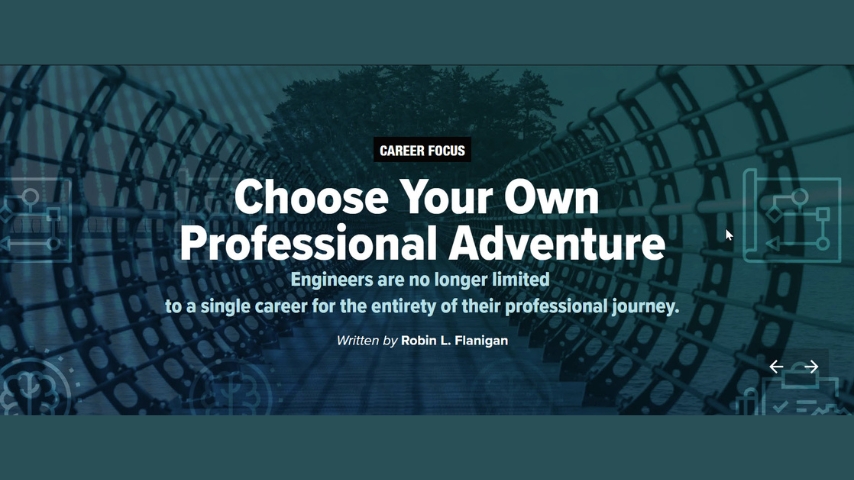Skills-First Hiring Stresses Real-World Abilities
Skills-First Hiring Stresses Real-World Abilities


Skills-first hiring shifts the spotlight from traditional qualifications like college degrees or years of experience and to a candidate’s real-world abilities and competencies.
In today’s evolving job market, more organizations are rethinking how they evaluate potential hires. A growing trend, known as skills-first hiring, shifts the focus away from traditional qualifications like college degrees or years of experience and instead emphasizes what candidates can do in the real world.
This approach centers on practical abilities and real-world competencies, recognizing that people gain valuable skills through diverse experiences—whether through hands-on work, self-directed learning, or non-traditional education. By looking beyond resumes and formal credentials, skills-first hiring opens the door to a broader, more capable talent pool, aligning candidates’ abilities directly with job requirements.
Ant Liang is the CEO of Promax, a pogo pin manufacturer in Guangdong, China. Pogo pins are spring-loaded electrical contacts, also known as a spring-loaded pin or contact probe, used in electronic devices and test fixtures.
“Skills-first hiring prioritizes candidate competencies, especially soft skills like communication, teamwork, and organization, over merely their educational background or specific hard skills,” Liang said. “This approach can greatly benefit mechanical engineers by ensuring that roles are filled by those best equipped to adapt and grow.”
Liang added that for entry-level engineers, skills-first hiring is promising. It means that attributes such as discipline, innovative thinking, and teamwork can set them apart, even if they lack extensive work experience.
“To boost your resume, focus on demonstrating problem-solving skills and leadership in projects,” he said. “Volunteering, internships, or participating in engineering contests can also be valuable. For interviews, engineers should weave their soft skills into stories of how effective communication saved a project or teamwork led to a creative solution. Resumes might spotlight achievements and roles in projects, rather than just listing technical skills.”
Liang emphasized that this approach also elevates the importance of transferable skills. Experiences from other industries or the military can highlight adaptability and diverse problem-solving strategies. He explained that shifting to skills-based could be a game-changer in making the engineering field more inclusive and diverse. It levels the playing field, focusing on potential and capability rather than pedigree.
Therese Ravell is the founder and CEO of Impact HR in Sydney, Australia. She recommended incorporating ways to ferret out skill in the interview process. Ideally, an interview should design every question to blend a technical element and a behavioral (soft skills) element.
For example: “Tell me about a time when there was a complex engineering issue to be resolved and you were working with someone who had a different approach to how to resolve it? What did you do and what was the outcome?” Or: “Tell me about a time when you had to manage a tight deadline for a project? Please explain the engineering challenges you faced and if you were able to deliver in time for the deadline?”
 “By asking questions like this,” Ravell said, “interviewers are able to dig into both the engineering knowledge and experience and how the person applied their soft skills to get an outcome. Soft skills are something that are often learnt in schools, universities, and team sports when students engage in extracurricular activities. Others have natural soft skills that may have been part of the way they were raised. As a result, there may be some engineers entering the workforce who will benefit from this additional assessment criteria and others who will be disadvantaged.”
“By asking questions like this,” Ravell said, “interviewers are able to dig into both the engineering knowledge and experience and how the person applied their soft skills to get an outcome. Soft skills are something that are often learnt in schools, universities, and team sports when students engage in extracurricular activities. Others have natural soft skills that may have been part of the way they were raised. As a result, there may be some engineers entering the workforce who will benefit from this additional assessment criteria and others who will be disadvantaged.”
Embracing a skills-first approach in engineering recruitment paves the way for a more inclusive and dynamic talent pipeline. By shifting the focus away from rigid qualifications and emphasizing practical abilities, companies can tap into a broader range of candidates with valuable, hands-on experience. This strategy not only helps reduce hiring bias but also builds a more capable and flexible workforce—one that’s better equipped to meet evolving industry demands and drive innovation.
Jim Romeo is a technology writer in Chesapeake, Va.
This approach centers on practical abilities and real-world competencies, recognizing that people gain valuable skills through diverse experiences—whether through hands-on work, self-directed learning, or non-traditional education. By looking beyond resumes and formal credentials, skills-first hiring opens the door to a broader, more capable talent pool, aligning candidates’ abilities directly with job requirements.
Soft and transferable skills
Ant Liang is the CEO of Promax, a pogo pin manufacturer in Guangdong, China. Pogo pins are spring-loaded electrical contacts, also known as a spring-loaded pin or contact probe, used in electronic devices and test fixtures.“Skills-first hiring prioritizes candidate competencies, especially soft skills like communication, teamwork, and organization, over merely their educational background or specific hard skills,” Liang said. “This approach can greatly benefit mechanical engineers by ensuring that roles are filled by those best equipped to adapt and grow.”
Liang added that for entry-level engineers, skills-first hiring is promising. It means that attributes such as discipline, innovative thinking, and teamwork can set them apart, even if they lack extensive work experience.
“To boost your resume, focus on demonstrating problem-solving skills and leadership in projects,” he said. “Volunteering, internships, or participating in engineering contests can also be valuable. For interviews, engineers should weave their soft skills into stories of how effective communication saved a project or teamwork led to a creative solution. Resumes might spotlight achievements and roles in projects, rather than just listing technical skills.”
Liang emphasized that this approach also elevates the importance of transferable skills. Experiences from other industries or the military can highlight adaptability and diverse problem-solving strategies. He explained that shifting to skills-based could be a game-changer in making the engineering field more inclusive and diverse. It levels the playing field, focusing on potential and capability rather than pedigree.
Focus on the interview
Therese Ravell is the founder and CEO of Impact HR in Sydney, Australia. She recommended incorporating ways to ferret out skill in the interview process. Ideally, an interview should design every question to blend a technical element and a behavioral (soft skills) element.For example: “Tell me about a time when there was a complex engineering issue to be resolved and you were working with someone who had a different approach to how to resolve it? What did you do and what was the outcome?” Or: “Tell me about a time when you had to manage a tight deadline for a project? Please explain the engineering challenges you faced and if you were able to deliver in time for the deadline?”

Choose Your Own Professional Adventure
Engineers are no longer limited to a single career for the entirety of their professional journey.
Embracing a skills-first approach in engineering recruitment paves the way for a more inclusive and dynamic talent pipeline. By shifting the focus away from rigid qualifications and emphasizing practical abilities, companies can tap into a broader range of candidates with valuable, hands-on experience. This strategy not only helps reduce hiring bias but also builds a more capable and flexible workforce—one that’s better equipped to meet evolving industry demands and drive innovation.
Jim Romeo is a technology writer in Chesapeake, Va.




.jpg?width=850&height=566&ext=.jpg)
